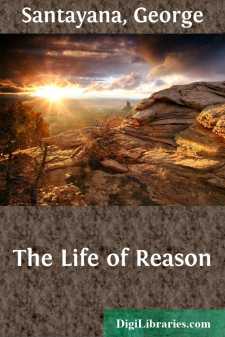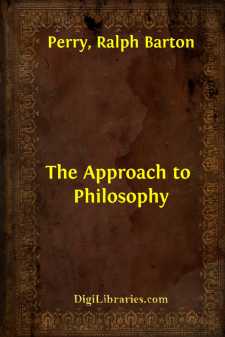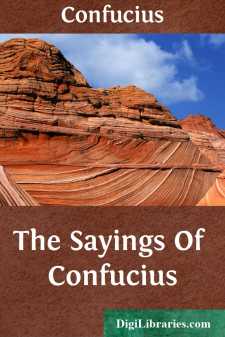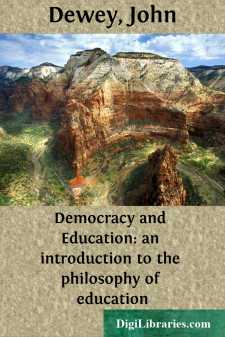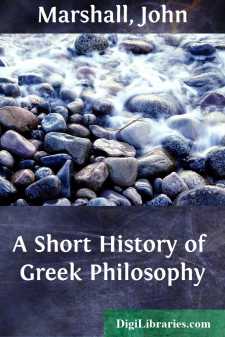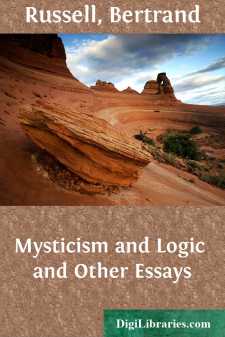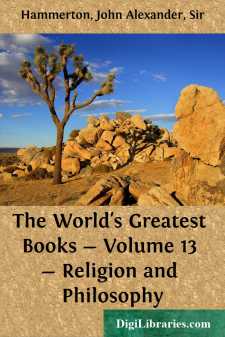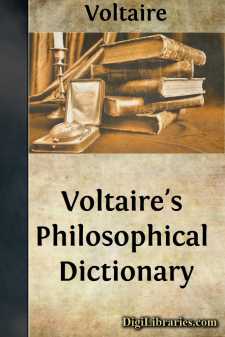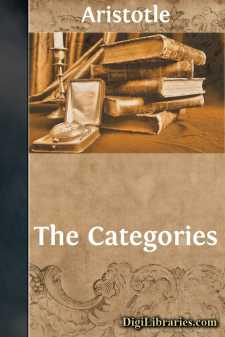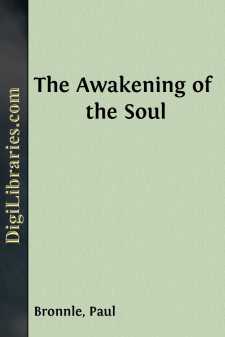Philosophy
- Aesthetics 11
- Eastern 1
- Ethics & Moral Philosophy 2
- General 30
- Hindu 2
- History & Surveys 3
- Logic 1
- Metaphysics 3
- Political 1
- Religious 7
- Social 3
- Taoist 1
Philosophy Books
Sort by:
by:
George Santayana
Whether Chaos or Order lay at the beginning of things is a question once much debated in the schools but afterward long in abeyance, not so much because it had been solved as because one party had been silenced by social pressure. The question is bound to recur in an age when observation and dialectic again freely confront each other. Naturalists look back to chaos since they observe everything growing...
more...
PREFACE In an essay on "The Problem of Philosophy at the Present Time," Professor Edward Caird says that "philosophy is not a first venture into a new field of thought, but the rethinking of a secular and religious consciousness which has been developed, in the main, independently of philosophy." If there be any inspiration and originality in this book, they are due to my great desire...
more...
by:
Confucius
INTRODUCTION Confucius was born in the year 550 b.c., in the land of Lu, in a small village, situated in the western part of the modern province of Shantung. His name was K'ung Ch'iu, and his style (corresponding to our Christian name) was Chung-ni. His countrymen speak of him as K'ung Fu-tzu, the Master, or philosopher K'ung. This expression was altered into Confucius by the Jesuit...
more...
by:
John Dewey
Chapter One: Education as a Necessity of Life 1. Renewal of Life by Transmission. The most notable distinction between living and inanimate things is that the former maintain themselves by renewal. A stone when struck resists. If its resistance is greater than the force of the blow struck, it remains outwardly unchanged. Otherwise, it is shattered into smaller bits. Never does the stone attempt to...
more...
by:
John Marshall
THE SCHOOL OF MILETUS The question of Thales—Water the beginning of things—Soul in all things—Mystery in science—Abstraction and reality—Theory of development I. THALES.—For several centuries prior to the great Persian invasions of Greece, perhaps the very greatest and wealthiest city of the Greek world was Miletus. Situate about the centre of the Ionian coasts of Asia Minor, with four...
more...
by:
Bertrand Russell
MYSTICISM AND LOGIC Metaphysics, or the attempt to conceive the world as a whole by means of thought, has been developed, from the first, by the union and conflict of two very different human impulses, the one urging men towards mysticism, the other urging them towards science. Some men have achieved greatness through one of these impulses alone, others through the other alone: in Hume, for example,...
more...
Religion THE APOCRYPHA Apocrypha is a Greek word, signifying "secret" or "hidden," but in the sixteenth century it came to be applied to a list of books contained in the Septuagint, or Greek translation of the Old Testament, but not in the Palestinian, or Hebrew Canon. Hence, by theological or bibliographic purists, these books were not regarded as genuine Scripture. That view was...
more...
by:
Voltaire
ADULTERY Note on a Magistrate Written about 1764 A senior magistrate of a French town had the misfortune to have a wife who was debauched by a priest before her marriage, and who since covered herself with disgrace by public scandals: he was so moderate as to leave her without noise. This man, about forty years old, vigorous and of agreeable appearance, needs a woman; he is too scrupulous to seek to...
more...
by:
Aristotle
Part 1 Things are said to be named 'equivocally' when, though they have a common name, the definition corresponding with the name differs for each. Thus, a real man and a figure in a picture can both lay claim to the name 'animal'; yet these are equivocally so named, for, though they have a common name, the definition corresponding with the name differs for each. For should any one...
more...
by:
Paul Bronnle
INTRODUCTION It is to two English scholars, father and son, Edward Pococke, senior and junior, that the world is indebted for the knowledge of one of the most charming productions Arabian philosophy can boast of. Generally looked upon as a subject of repulsive aridity, in its strange combination of the most heterogeneous philosophical systems, devoid of the grace and charm of attractive style,...
more...


